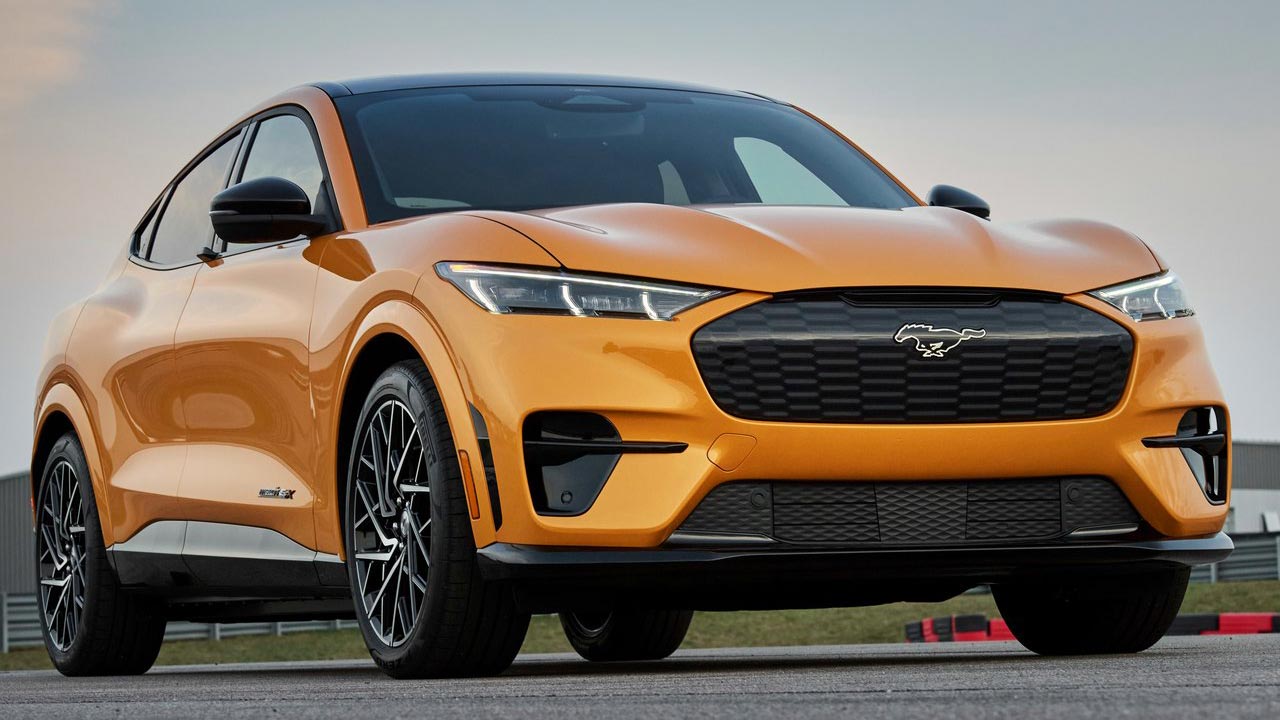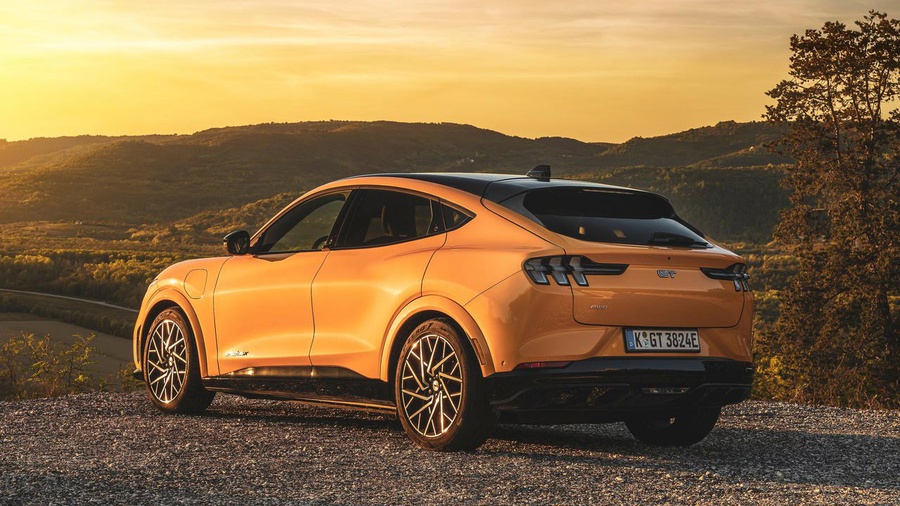Ford is working to recall 34,762 Mustang Mach-Es. The vehicles are at risk of losing power. The problem stems from exposure to elevated temperatures, which can lead to deformation of the battery connectors, especially after numerous instances of rapid acceleration and/or multiple DC fast charge cycles.
As a result, the automaker believes the problem is most severe on Extended Range and GT models - so they're the ones getting this fix. Ford will completely replace the Bussed Electrical Center (sometimes referred to as the High Voltage Battery Junction Box) in these vehicles to make it more heat resistant.
The original bussed electrical boxes were found to be prone to overheating last year. This could lead to arcing and deformation of the battery's main contactors, which could bend them open and prevent them from closing, or alternatively weld them shut.
Either scenario is bad, but if they're welded together, the Mustang Mach-E will throw an error code and lose the ability to move forward. Should this happen while the vehicle is on the road, it significantly increases the risk of a potentially dangerous accident.
Back in 2022, when Ford first learned of this problem, it issued a recall for nearly 50,000 units of the EV and a software update. However, the software was only intended to provide an earlier warning to the driver and help the vehicle continue at highway speeds if the contactors were damaged.
In August, the U.S. National Highway Traffic Safety Administration (NHTSA) opened a recall investigation, questioning the effectiveness of Ford's original solution. That's because it had received several complaints from drivers that their vehicles were losing power despite the recall fix.
After reviewing the data, Ford has decided to replace the bussed electrical center on 34,762 Mustang Mach-E Extended Range and GT models. It believes that the lower loads on the Standard Range variants means that damage to the contactors is much less likely. Ford says it is aware of 107 instances of this problem occurring, and only seven of those were on Standard Range models.
The fix will be completed at no cost to the owner, and the Blue Oval plans to begin contacting affected owners on October 30.
Source: Carscoops


